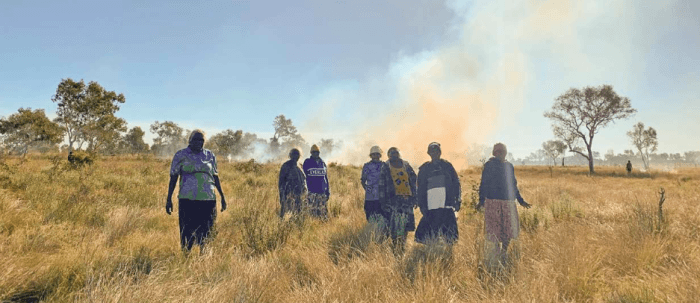

A Territory-based film project may be suffering a serious blow from the 100% tariff imposed by Donald Trump on movies produced outside the USA. But then the project may also benefit from it.
The President named actor Jon Voight a "special ambassador" for Hollywood who proposed a range of tax incentives. Unsurprisingly, Trump took a different tack.

A small Alice Springs family business will be represented in the Australian pavilion at the Expo 2025 Osaka, Japan, expected to have more than 28 million visitors by October.

Labor’s Marion Scrymgour extends her margin in all but one of the seven Alice Springs booths during the landslide Federal election on Saturday. Greens, too, are doing better, with candidate Blair McFarland (pictured). ERWIN CHLANDA reports.

Federal government staff are thin on the ground in the Territory, forcing Canberra to channel its spending through the NT Government and non-government organisations. CDU Adjunct Professor Rolf Gerritsen, who spoke with editor ERWIN CHLANDA today, says this includes funding for Closing the Gap whose results in the NT are poor.

If tougher bail laws worked to reduce crime, then jurisdictions like the Northern Territory and Queensland – which already have among the most restrictive bail frameworks in the country – would be the safest places in Australia. But that is not what the evidence shows. Letter to the Editor from Dr Mindy Sotiri, Executive Director, Justice Reform Initiative.

Buffel grass as been declared a weed but in a class that has yet to be determined. MIKE GILLAM looks at the existential threat to our environment, and consequently to our economy and lifestyle, all but ignored in the election campaign.

An aggravated robbery occurred in Alice Springs this morning.

Locky Weir in his new JIMCO Prolite came first in the Arid Offroad NT Titles Round 1 at Mt Ooramina where 10 local entries vied for good placings. PADDY WEIR reports.

By ERWIN CHLANDA Transparency is a very one-sided proposition for the Central Land Council (CLC): It wants the news media to publish its positions but it won’t give answers to questions the media put to them. That’s certainly the experience of the Alice Springs News with this secretive organisation which, like other Aboriginal land councils […]

By ERWIN CHLANDA Landcare NT won’t be joining the “activists and economic vandals” as Joshua Burgoyne calls them. The Environment Minister isn’t talking about his government that will give an annual gift – no water rates to be paid – of 40 billion litres of Territory water a year, for 30 years, to the Chinese owned […]